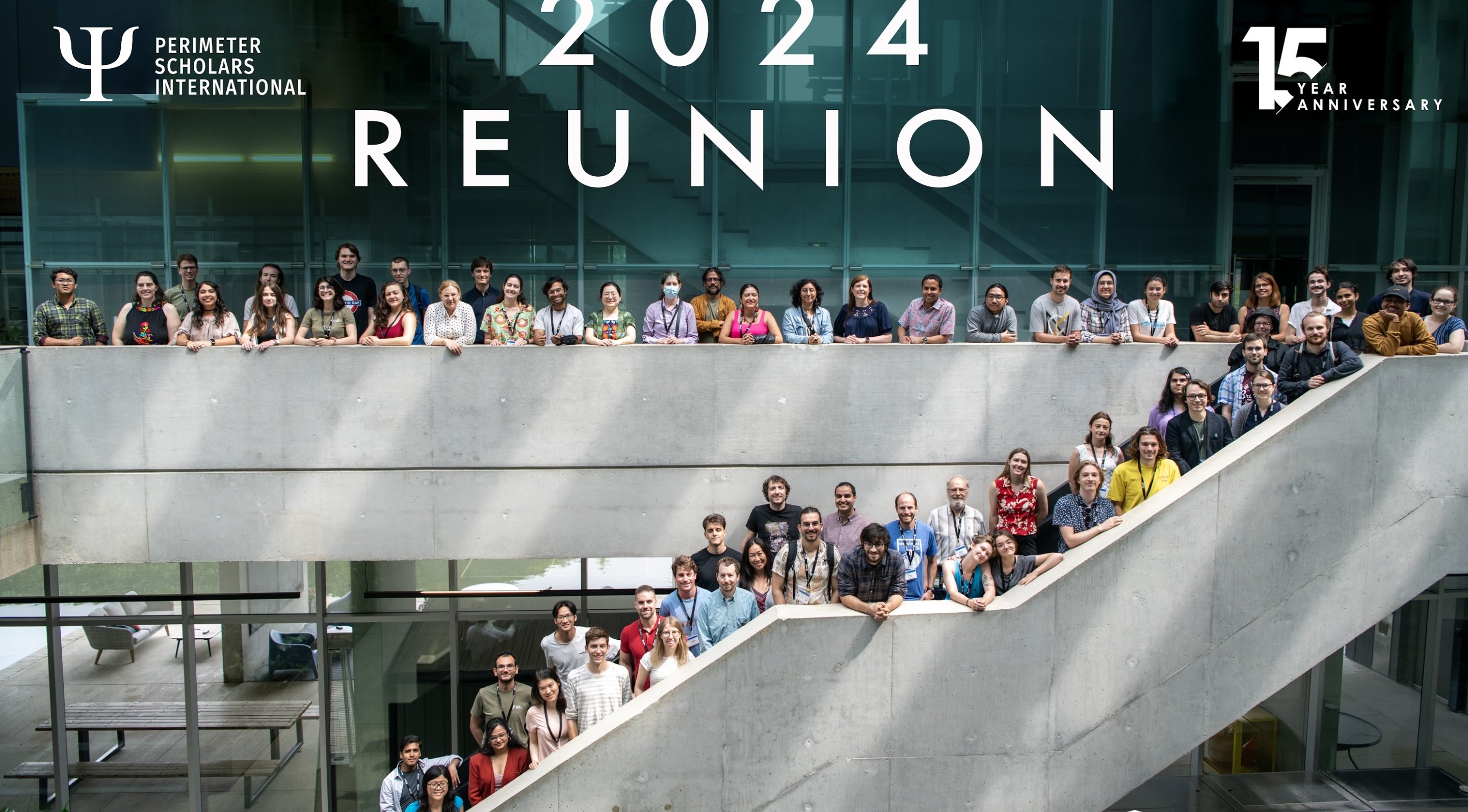Perimeter Scholars International celebrates its 15th anniversary
When Neil Turok took over as Director of Perimeter Institute in 2008, part of his vision was to create an innovative graduate program that would attract brilliant young students from around the world. Within a year, in collaboration with the nearby University of Waterloo, Perimeter Scholars International (PSI) was born.
Fast forward 15 years and the program has more than 400 graduates from 75 countries, many of whom participated – virtually and in-person – in a recent three-day 15th anniversary reunion that concluded with the graduation ceremony for PSI’s 15th class.
At the reunion’s kickoff address, many of the people who have been instrumental in the program’s early years reminisced about its roots.
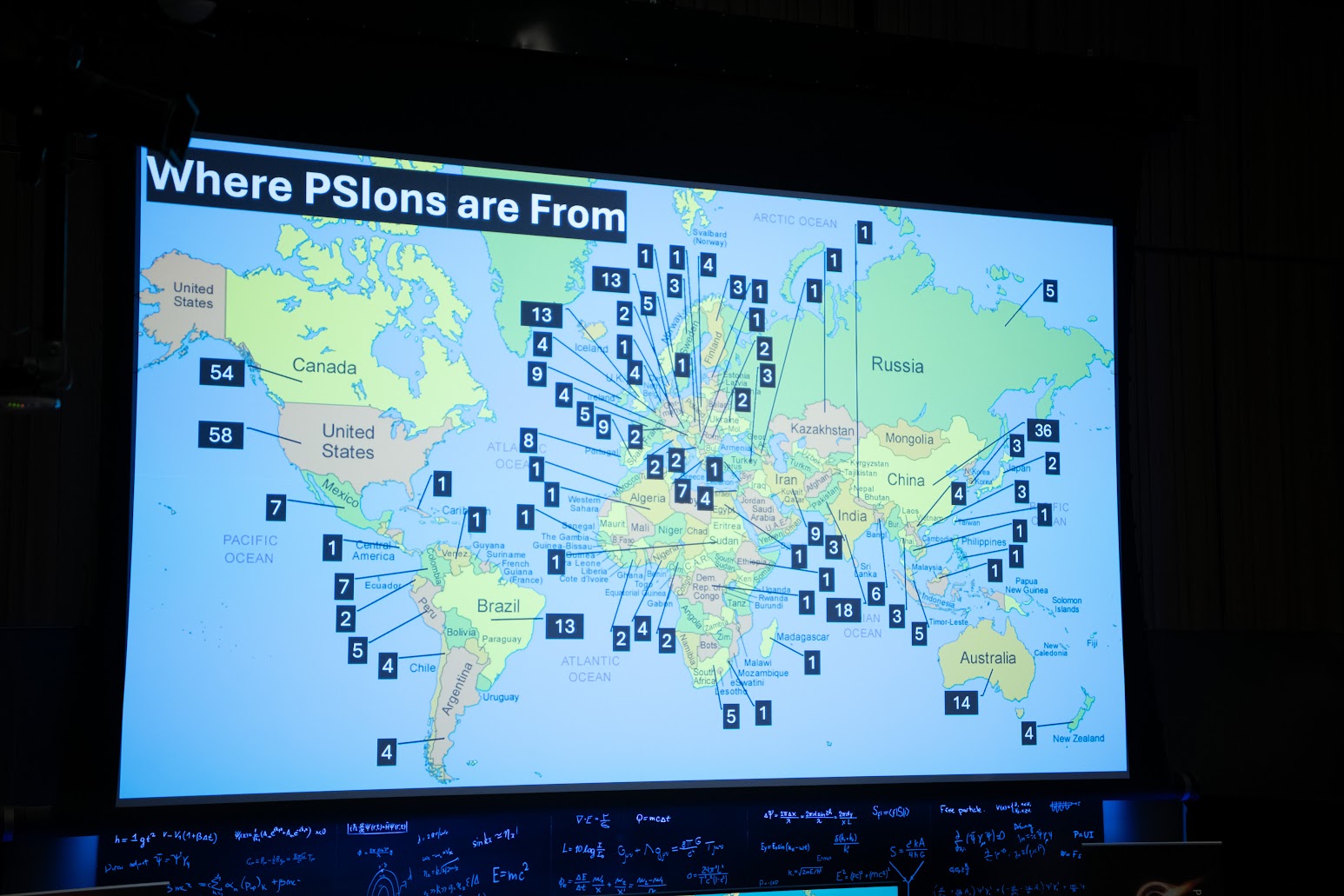
“We wanted to bring the brightest, most motivated, most diverse group of students we could gather from all over the world, bring them together using their fascination with the fundamental properties of the universe as the glue which would attract them to Perimeter, bind them together through a very intense study program, and allow them to achieve things they didn’t dream were possible,” recalled Turok.
“It was an experiment. The outcome wasn’t guaranteed in any shape or form – that made it very exciting,” he added. “I’m confident in saying this is the best course in theoretical physics in the world.”
Robert Myers, one of Perimeter’s founding faculty members and Turok’s successor as Director, marvelled at the impact the PSI students have had on Perimeter’s culture.
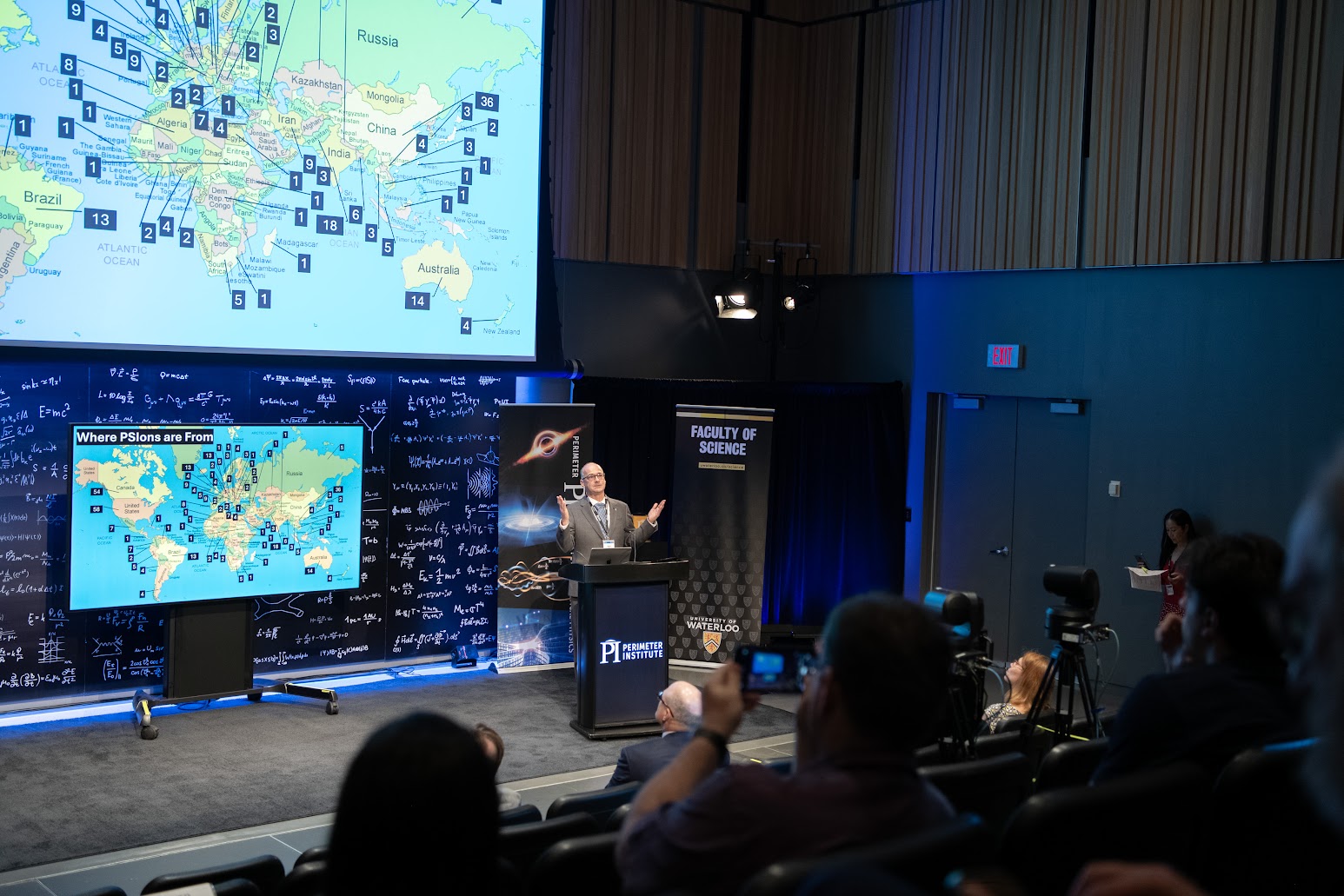
“They energize the building and they have become a cornerstone of our culture of collaboration,” he said. “Our drive to be interdisciplinary, to really be willing to try new ideas – all of that began to flourish in the presence of many bright, young, talented minds from around the world.”
As part of the anniversary festivities, returning alumni had the chance to renew that interdisciplinary spirit by competing in a physics pitch competition. Teams proposed a myriad of projects, from promoting inclusivity in physics to stimulating action on climate change amongst the physics community.
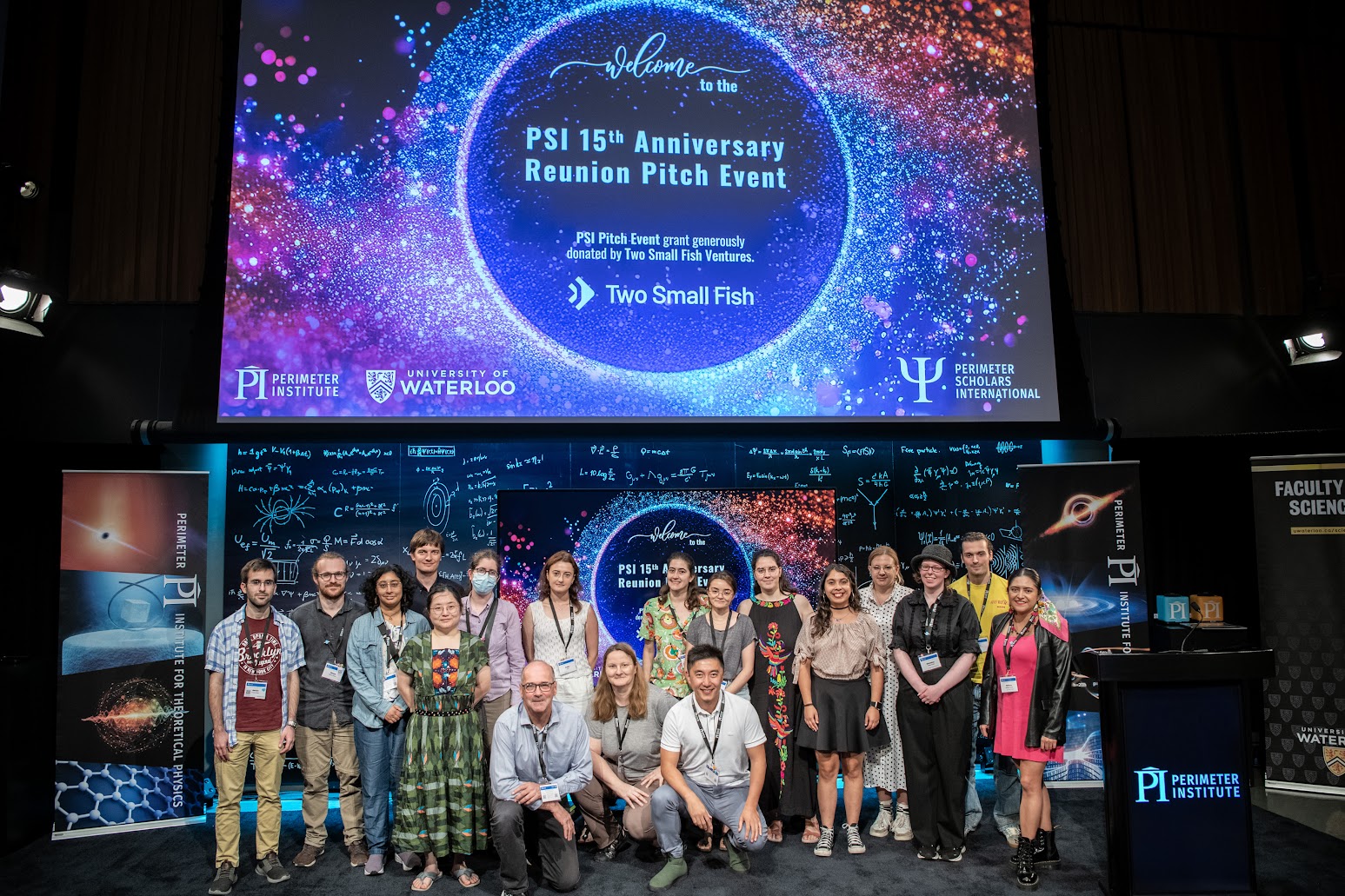
The winning pitch, Simulating the Future through Science Fiction, took home a $10,000 prize to continue their work, generously funded by Two-Small Fish Ventures. The winning team hopes their victory will enable them to write a grounded sci-fi stageplay exploring “the technological and social reverberations of theoretical research” in a complicated world.
As the reunion festivities came to a close, graduates of the current PSI class crossed the stage to claim their degrees. One of them, Hyo Jung Park, reflected on what the PSI program meant to her.
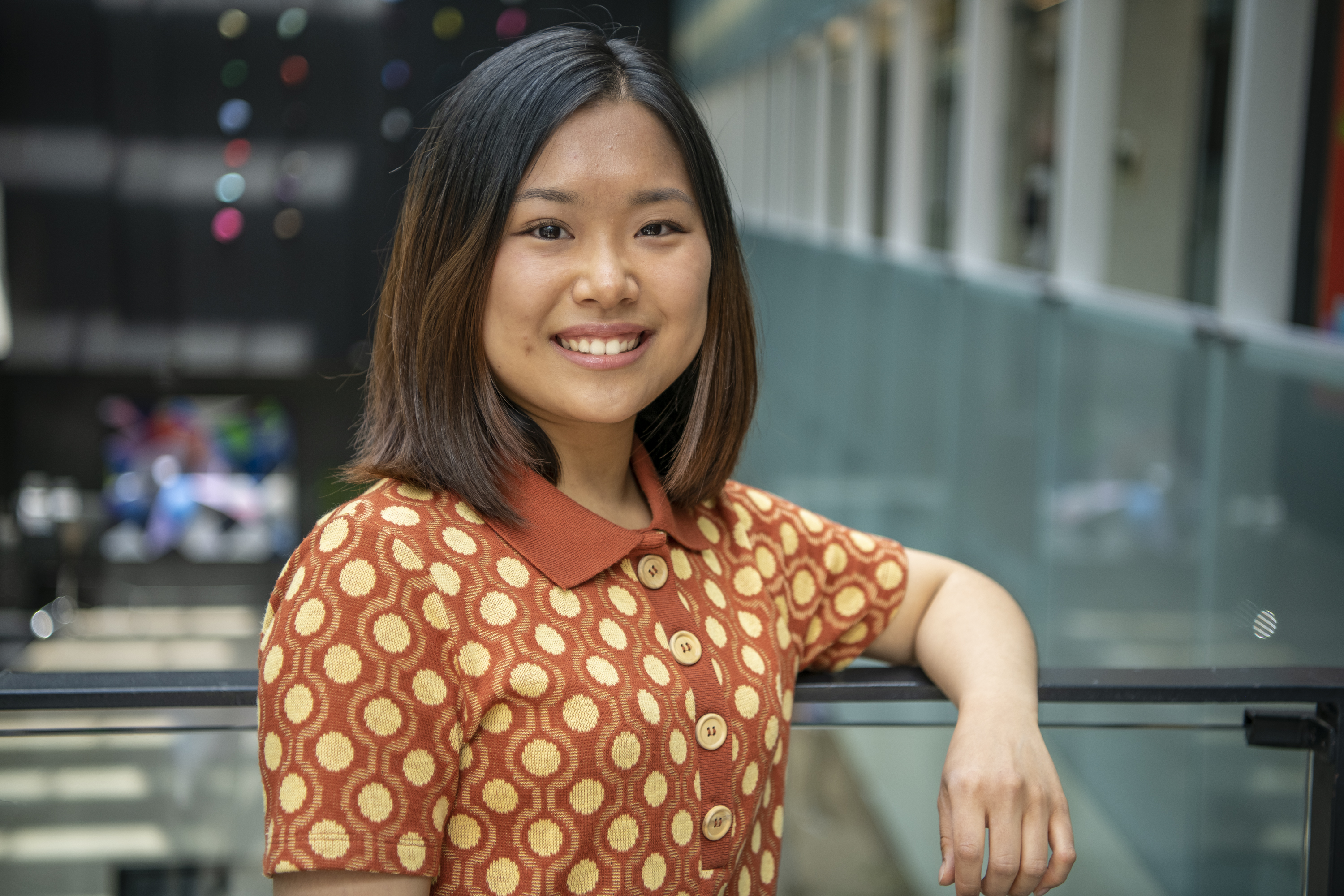
“I had always been apprehensive about me doing theoretical physics. I only knew a very narrow definition of physicists, like one who studies all day alone in their office, a genius at mathematics, or messy hair like Einstein’s, and I didn’t look like any of these. But my experience in PSI shattered this glass barrier in my mind.”
The 15-year history of the PSI program is full of such stories, and has launched successful careers for students of all backgrounds.
To ensure that those successes continue, we are excited to share the announcement a new initiative intended to kickstart the next 15 years of PSI.
PSI will continue to bring elite students to the forefront of cutting-edge physics in an intensive one-year program, but will now also give students a two-year option that includes time dedicated to research in academia or internships with industry partners.
In making the announcement, Jeff Casello, Associate Vice-President for Graduate Studies and Postdoctoral Affairs at the University of Waterloo, applauded the partnership for creating a world-leading training destination and expressed excitement about the opportunities the new two-year option will create.
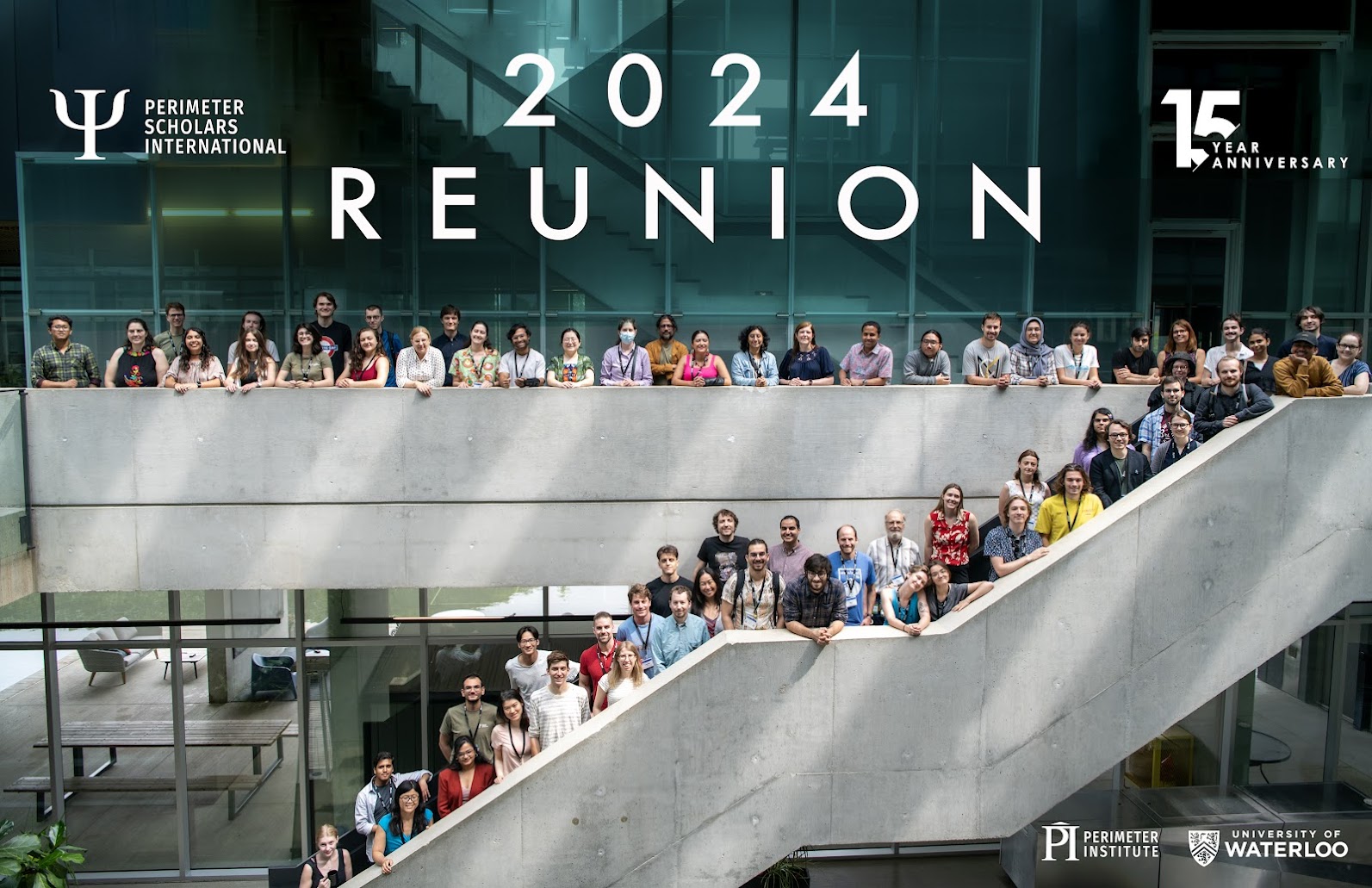
“This program is coming on board to provide funded internships for those who want to explore cutting-edge careers in academia and beyond,” said Casello. “We want to ensure that PSI prepares students to become scientists, while giving them a pathway to explore a range of professional opportunities.”
“Through this 15-year partnership, the program has matured to what it is today and I’m really looking forward to the next 15 years,” added Maïté Dupuis, Perimeter’s Director of Training, Educational Outreach, and Scientific Programs. “I’m really excited about this new agreement that we have.”
À propos de l’IP
L'Institut Périmètre est le plus grand centre de recherche en physique théorique au monde. Fondé en 1999, cet institut indépendant vise à favoriser les percées dans la compréhension fondamentale de notre univers, des plus infimes particules au cosmos tout entier. Les recherches effectuées à l’Institut Périmètre reposent sur l'idée que la science fondamentale fait progresser le savoir humain et catalyse l'innovation, et que la physique théorique d'aujourd'hui est la technologie de demain. Situé dans la région de Waterloo, cet établissement sans but lucratif met de l'avant un partenariat public-privé unique en son genre avec entre autres les gouvernements de l'Ontario et du Canada. Il facilite la recherche de pointe, forme la prochaine génération de pionniers de la science et communique le pouvoir de la physique grâce à des programmes primés d'éducation et de vulgarisation.
